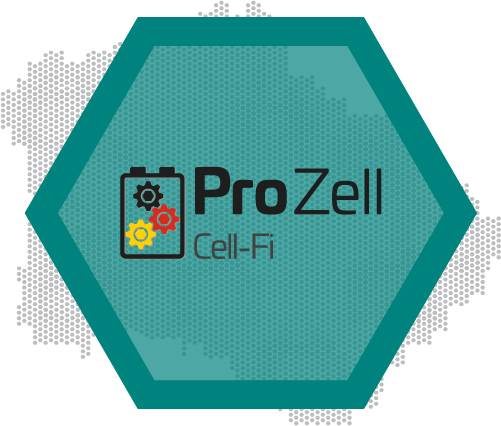Within the framework of the competence cluster for battery cell production (ProZell) we currently work in the project Cell-Fi on the optimal electrolyte filling of battery cells. The aim of the cluster is to investigate and improve the influence of the production process on cell properties and production costs and to extend it to future battery generations. There are currently 12 projects within the PorZell cluster with 12 German universities and research institutes working together on several aspects of battery production.
The ProZell cluster aims at providing the scientific foundation for the establishment and sustainable development of an internationally leading and competitive battery cell production in Germany. Specifically, the project Cell-Fi deals with speeding up the time-consuming electrolyte uptake through optimized filling and wetting processes.


